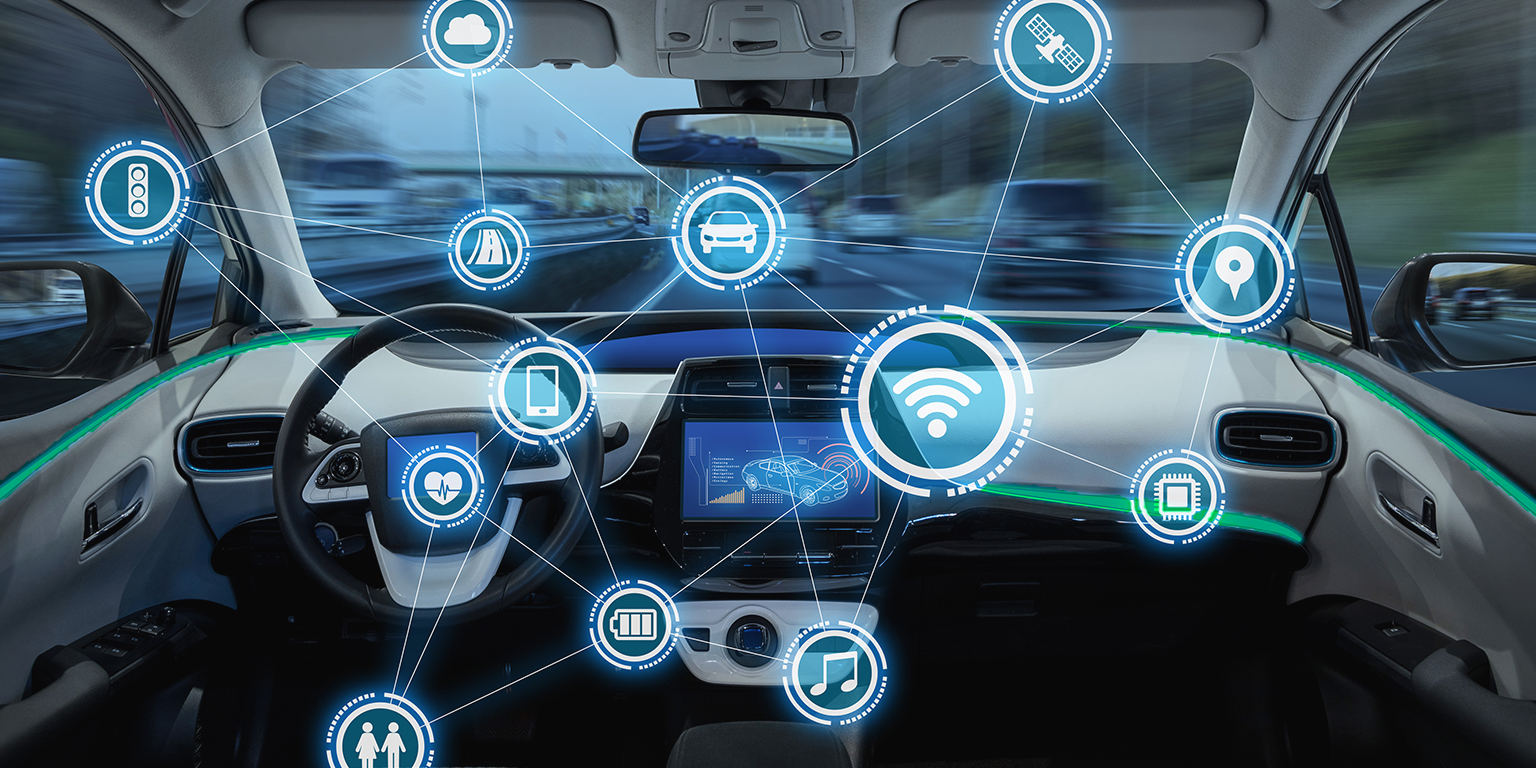Parkopedia: Connected Vehicle Commerce 2021 Recap

This month, key players of the connected car industry came together at the 2021 Connected Vehicle Commerce event, to discuss the future of in-car payments. Below were some of the key takeaways:
1. Public Versus Home EV Charging
At the event, Jaguar Land Rover discussed that roughly 80 percent of Electric Vehicle (EV) charging is completed at home, however, when discussing the barriers to entry for EV ownership, the same percentage of drivers would reject purchasing an EV in favour of an ICE vehicle, due to a perceived shortfall in public charging infrastructure.
A recent study in the UK found that out of the total 27 million households, nearly a quarter did not have access to off-street parking that could be used to charge an EV. This equates to more than 6.5 million households that would be solely reliant on public charging if we moved to entirely electric motoring.
While this may seem manageable for occasional private use, business drivers have much higher demands for their vehicles. In the UK, private vehicle owners typically travel an average of 7,200 miles per year, roughly 130 miles per week. In contrast, business drivers complete over double this figure, covering on average 18,400 miles per year, around 70 miles per working day. As this mileage is completed consecutively across the week, these vehicles will frequently need to be charged daily, through the night, or drivers will need to be confident in finding a working public EV charger that can accommodate their charging needs.
There are currently around 17,000 public chargers in the UK and only 25% of these are on-street, which works out to one on-street charger for every 1460 households without off-street parking. With the average household in the UK running 1.2 cars, that is potentially 7.8m vehicles that are reliant on street charging, or 1,752 cars per charger.
Current issues with public charging include a lack of information regarding a charging station's capacity for vehicles, charger functionality, available charging speed, contrasting EV charging payment methods, and a flooded market of complicated apps due to a highly fragmented infrastructure.
Parkopedia is looking to address some of these issues with our new platform launched this month, which was also discussed throughout the event. The new multi-domain platform is an extension of our existing market-leading real-time parking payment solution, currently in use by global automakers such as Mercedes, Volkswagen, BMW and Toyota, and features integrated EV charging payments, as well as covering further vehicle-centric services, such as fuelling and tolls. All payments are made via a single sign-on solution, enabling drivers to one account to activate and pay with ease from behind the wheel across a wide variety of merchants.
2. Mobile Apps Versus Automaker Embedded Solutions
According to a recent study, in-car commerce sales will grow from $12 million per annum in 2020 to reach over $11 billion a year by 2025. The COVID-19 pandemic has helped amplify the demand for contactless transactions, and according to many industry professionals, helped accelerate the transition towards wider adoption of in-car payments by more than three years.
Joined by speakers from Mastercard, Fox Rothschild LLP, Cerence Inc and Jaguar Land Rover, Parkopedia’s COO, Hans Puvogel, was part of the debate on the pros and cons of bringing an already established mobile user account to the vehicle, versus allowing the vehicle manufacturer to manage the entire customer journey from the beginning with their own solutions.
Using a phone at the wheel is dangerous and illegal, however, in a busy driving situation, many drivers will admit to picking up their device when they know they shouldn’t. The only way to prevent this completely is to integrate all connected vehicle services currently managed by apps, such as finding, reserving and paying for parking and EV charging, as well as paying fuel and tolling fees, directly from the vehicle.
Instead, embedded solutions offer many advantages, such as in parking where drivers may have registered accounts with third-party parking management companies and wish to integrate these into the vehicle head unit for ease of use. With the next generation of infotainment systems, we are seeing connected vehicle commerce platforms aggregating multiple service providers and merchants simultaneously into a single API, streamlining the highly fragmented in-car services industry to provide a far superior, frictionless user experience for drivers.
Parkopedia believes that by using these state-of-the-art, integrated systems, the automaker is able to make use of the vehicle’s entire range of existing sensors and data to provide helpful information to the driver and improve their experience with functions such as driver prompts and one-touch confirmation for payments, something that non-integrated mobile apps are unable to offer.
Some experts at the event revealed that their research led them to believe that drivers dislike prompts, and feel that with the integration of ADAS warnings, there is an ongoing battle for the driver’s attention between the road and communication from the vehicle. Everyone agreed though that driver prompts that genuinely assist the driver on their journey, such as prompting them to pay when leaving a car park, or suggesting electric vehicle charging services that accept digital activations or payments were certainly welcome, putting the onus on the automaker to decide which prompts are truly beneficial.
3. The Future of In-vehicle Commerce and Driver Acceptance
Many drivers still value the convenience of vehicle-centric smartphone apps, which have been necessary to manage the payment user experience which in-car solutions have been missing. The panel discussed what the industry can do to add more value, and therefore, increase customer acceptance of In-vehicle payments.
There are many benefits to existing apps, such as incorporating data already held in the device and the ability to easily move between multiple vehicles while retaining a familiar interface. However, Cerence’s Nils Lenke also added that 65% of drivers now want to pay for parking via voice command, with this percentage rising significantly in key automotive regions such as Germany. The latest integration of voice assistance technology, which is making the jump from home use to in-car integration, will enable a driver to continue to use these familiar services and be less reliant on their handset in the future.
Experts agreed that as more of our devices become connected in the future, it also opens up completely new omnichannel opportunities for companies to engage with drivers. Connected vehicle services are able to deliver bespoke and personalised experiences that only a vehicle is capable of doing. For example, vehicles are able to prompt drivers to automatically pay for parking if a parking gear is engaged in a paid parking location. Alternatively, onboard weather systems can detect colder temperatures that could negatively affect available range - directing drivers to the closest or cheapest chargers within revised range figures that also accept in-car payments. The experts agreed that this is where the future of connected in-vehicle commerce lies, where the value of prompts and suggestions are immediately evident to the driver, assisting with their journey in a way that no smartphone would be able to.
Hans stated during the discussion, “it is not about converting the car into an iPhone on wheels, it is about creating a genuine, specific user experience in the car that is as frictionless as possible for the driver.” This reinforces where we believe the future for connected car technology as well as in-car commerce lies, adding true value to the driver and enhancing their journeys.
About Parkopedia 
Parkopedia is the world’s leading parking services provider used by millions of drivers and organizations such as Audi, Apple, BMW, Ford, Garmin, GM, Jaguar, Land Rover, Mercedes-Benz, Peugeot, Sygic, TomTom, Toyota, Volkswagen, and many others. Parkopedia is available in 15,000 cities across 89 countries globally, covering over 70 million parking spaces, helping drivers take the pain out of parking. Parkopedia helps drivers find the closest, cheapest, or available parking to their destination, pay in selected locations, and navigate directly to the parking space. Visit business.parkopedia.com for more information.






Comments
There are no comments yet for this item
Join the discussion